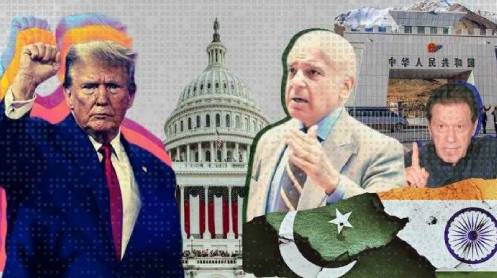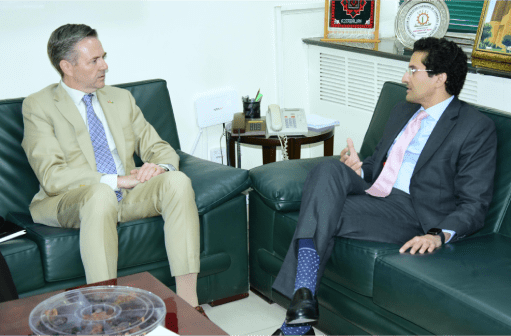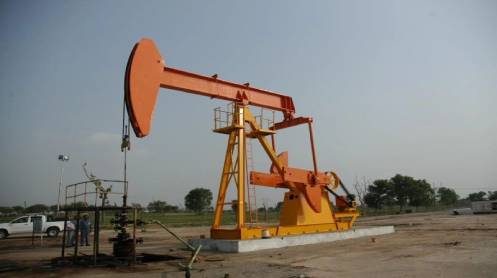Pakistan stands at a crossroads with the US as Donald Trump is all set to reenter the White House
Choppy waters lie ahead. Pakistan was struggling to recalibrate its foreign policy in a transformed regional and global reality even before United States forces completed their withdrawal from Afghanistan on August 30, 2021. Now, with Donald Trump set to assume the White House on January 20, 2025, things are more uncertain than ever. Pakistan is no longer able to make the most of its geo-strategic location for a seat at the high table.
Squeezed between competing and conflicting US interests in China, India, and Iran, Pakistan needs to have something worthwhile to sell to the incoming US administration because President-elect Donald Trump means business — literally. His previous presidential stint proved that, for him, international relations are transactional: give some, get some.
In a world already fraught with geopolitical tensions like the US-China rivalry, rising nationalism and fascism, and the wars in Ukraine and the Middle East, Pakistan’s challenges are compounded by national security threats, an unstable regional landscape, strained relations with neighbouring countries, and a fragile domestic economy heavily dependent on external financial support. The interplay of these factors will shape Pakistan’s ties with Washington in the years ahead.
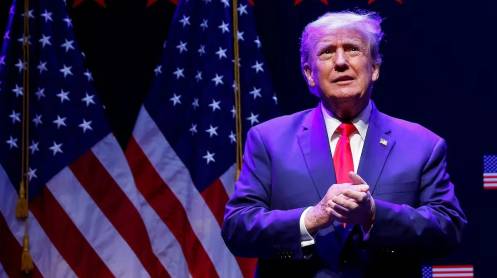
There is no doubt that at least the first year of Trump’s administration will be a tough one for Pakistan. But it’s not all bad news. The US has more pressing global issues to address, and Pakistan, for the moment, remains a low priority for Trump and his band of merry men. That can provide Islamabad with much-needed breathing space to sort out its internal problems.
Donald Trump’s earlier presidency proved his belief in transactional diplomacy. For Pakistan, it meant a halt in Coalition Support Funds, reduced military aid, and increased US-India ties at Islamabad’s expense. However, Trump’s willingness to engage in immediate US interests, such as counterterrorism, provides a potential opening for Pakistan to recalibrate its relationship with Washington. But Islamabad needs to avoid repeating past mistakes and resist using American support for counterterrorism as a short-term measure to prop up its weak economy.
It is pretty clear that Trump’s “America First” doctrine will mean harsher terms for defence cooperation and less or highly conditional aid, as witnessed in his first term. However, his pragmatic nature may help Islamabad negotiate more favourable terms on specific issues, such as counterterrorism or trade.
Pakistan must first demonstrate itself as a reliable partner capable of advancing mutual interests. Even though the geopolitical importance of Pakistan has significantly diminished, Islamabad can still pitch itself as an important export market for the US, a destination for foreign direct investment, and an important player in regional stability.
CPEC 2.0 on a tightrope
Pakistan’s toughest test will be navigating the US-China rivalry. As Washington intensifies efforts to counter Beijing’s political and economic influence, Pakistan faces the tough task of maintaining its friendship with China while avoiding entanglement in the US-led anti-China coalition. In Trump’s second term, Islamabad will be seen largely balancing itself between Washington and Beijing as its core diplomacy strategy.
Pakistan’s partnership with China remains its foremost foreign policy priority. The China-Pakistan Economic Corridor (CPEC), a flagship initiative of Beijing’s Belt and Road Initiative, underscores this relationship. There are, however, bumps along the road, such as Beijing’s growing concerns over attacks on Chinese citizens in Pakistan and Islamabad’s repeated requests for debt rollovers.
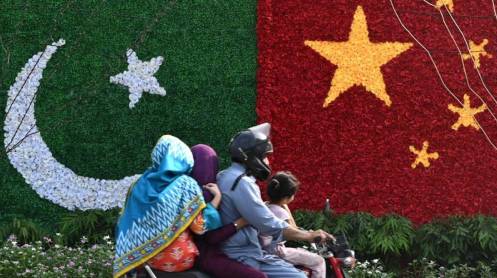
Luckily, Trump’s anticipated trade war with China has paused any potential backtracking on CPEC. Recently, both countries reaffirmed their commitment to CPEC 2.0, with emphasis on industrialisation, Special Economic Zones, clean energy, agriculture, and livelihood projects.
There should be no doubt that the incoming Trump administration will view Pakistan’s deepening ties with Beijing through the lens of its rivalry with China. Pakistan must navigate this landscape with deft diplomacy, ensuring its partnership with China does not prevent or hinder constructive engagement with the US. Pakistan can focus on playing the role of a bridge between competing powers rather than that of a pawn in their rivalry. And such effective diplomacy will require skilled diplomats, not ex-servicemen.
During his first term, Trump criticised the use of International Monetary Fund bailout money for Pakistan, arguing much of it financed CPEC debt. His administration is likely to maintain this stance, which may become a problem in the staggered rollout of International Monetary Fund (IMF) relief for Pakistan.
The India factor
Washington’s strategic and economic partnership with India is growing, further complicating Pakistan’s relationship with the US. Under Trump, and even Biden for that matter, the US positioned India as a counterweight to China, deepening defence and trade ties with New Delhi. This trend is likely to continue, leaving little room for Pakistan to influence US policy in South Asia.
The restoration of ties between Pakistan and Bangladesh after the fall of Sheikh Hasina’s government on August 5, 2024, has become another thorn in India’s side. The revival of the South Asian Association for Regional Cooperation (SAARC), as repeatedly advocated by Bangladesh’s Chief Advisor Muhammad Yunus, offers a platform to explore ways to reduce regional tensions.
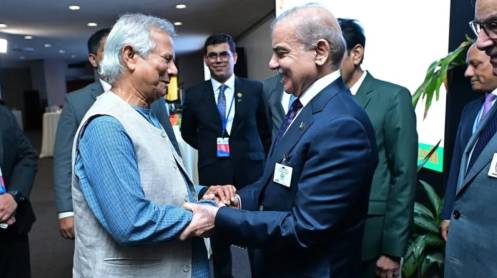
India, on the other hand, continues to focus on containing Pakistan. Having lost support on its eastern flank, New Delhi is actively working to encircle Pakistan by mending border disputes with China and restoring diplomatic and trade ties with the Taliban regime in Afghanistan. Within three months of Bangladesh’s political turmoil, India and China agreed to scale back their border dispute and resume pre-2020 patrols in disputed areas in eastern Ladakh.
Washington has already shown that it clearly prefers India as a counterbalance to China in the Indo-Pacific region. With hawkish Senator Marco Rubio set to become the next US Secretary of State, ties with Pakistan will likely become further strained. Rubio has a clear anti-China and pro-India stance, favouring India as an equal to US allies like Japan, Israel, and South Korea while scrutinising Pakistan’s counterterrorism efforts. More shortsighted attempts to force the US to pay attention could lead to greater disappointment for Islamabad.
Then there is Afghanistan
Relations with Afghanistan plunged to new lows following Pakistan’s airstrikes against Tehreek-i-Taliban Pakistan (TTP) hideouts across the border. Kabul’s refusal to act against TTP terrorists has left Islamabad with no choice but to adopt a more forceful approach. Nearly 700 Pakistani security personnel were killed in 2024, making it one of the deadliest years in recent history.
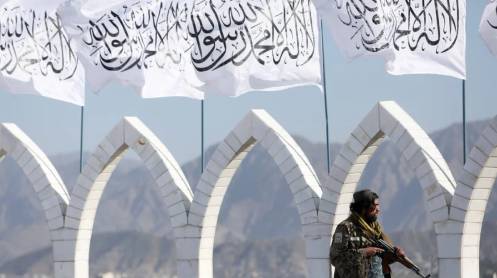
Caught off guard by political upheaval in Bangladesh, India is strengthening its ties with the Afghan leadership in Kabul, a development that is raising serious concerns for Islamabad. High-level meetings between Indian and Afghan officials have focused on reviving trade, developmental projects, and support for Afghan refugees — potentially providing India with another means and another route to meddle in Pakistan’s western provinces.
Trump has no direct interest in Afghanistan and is unlikely to intervene in Pakistan-India conflicts played out through Afghanistan. However, like before he might reduce financial support to Afghanistan, leaving Pakistan to bear the burden once again.
Domestic realities and the path forward
Pakistan’s fragile economy adds another layer of complexity to its foreign policy. The US is Pakistan’s largest export market and a significant source of remittances from the Pakistani-American diaspora. Engagement with Washington on trade and economic issues will be critical for Islamabad’s economic stabilisation.
Pakistan has been demanding climate compensation from the West, but nothing bodes less well for this effort than Donald Trump’s assertion that global warming is a “scam”. On the other hand, his transactional style may open space for economic engagement, if Pakistan can demonstrate its worth as a trading partner.
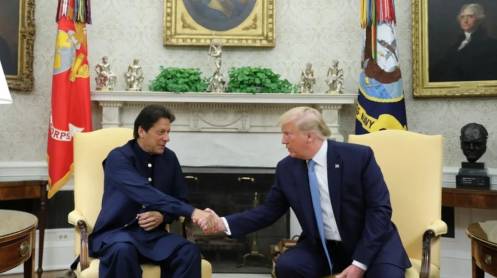
As for the expectation of a majority of Pakistanis that Trump will force Islamabad to release Pakistan Tehreek-e-Insaaf leader Imran Khan, let’s not forget that Trump can be quite fickle in his preferences, especially if they have nothing to offer in return. Dr Shakil Afridi, serving 23 years in jail for allegedly helping the CIA in locating Osama bin Laden, is a case in point. Trump had promised during his 2016 presidential campaign that if elected he would get Dr Afridi released in ‘two minutes’. We all know that didn’t happen. Neither will it happen in the case of Imran Khan. A politically stable Pakistan will be more beneficial to Trump’s US than to uphold the strong boys’ club.
Pakistan stands at a crossroads with the US as Donald Trump is all set to reenter the White House. To navigate this complex landscape, Islamabad must balance its relations with China and the US, avoiding entanglement in their rivalry; engage with the US on trade and investment by presenting itself as a valuable partner; prioritise stability in regional relations, focusing on crisis prevention and diplomatic engagement; and, most importantly, get the house in order by addressing economic vulnerabilities and political grievances to ensure a stable platform for conducting foreign policy.


